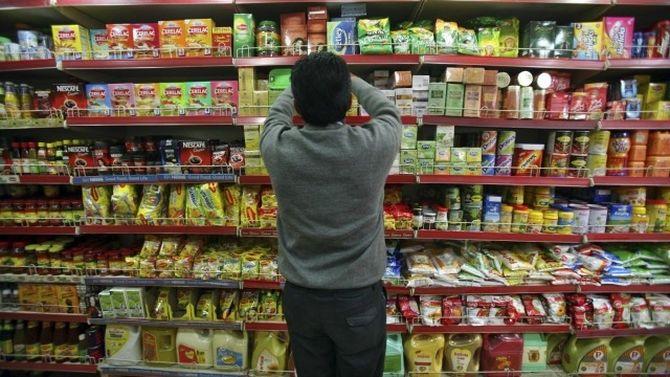FMCG CEOs indicate that the market should stabilise post the general elections and that some growth should make its way back especially in rural areas.

India’s fast-moving consumer goods (FMCG) market is seeing its worst slowdown in two years.
March quarter (Q4) numbers of listed players such as Hindustan Unilever (HUL), Dabur India, Godrej Consumer and Britannia, released over the past one week, point towards the same.
HUL saw its lowest volume growth in six quarters for the period under review.
Britannia posted a soft quarter with volume growth at 7 per cent only. Dabur and Godrej also felt the slowdown, with net profit falling by 6.5 per cent and profit before tax declining 32 per cent, respectively, from a year earlier.
While research agency Nielsen has lowered its growth forecast for the 2019 calendar year by 200 basis points, FMCG CEOs indicate that the market should stabilise post the general elections and that some growth should make its way back especially in rural areas, where the slowdown has been pronounced.
“I see the market bouncing back in the near term. FMCG growth rates have not vanished.
"So, there is no panic situation here.
"The government that will come to power post the elections will make an effort to kickstart the economy.
"This should help improve sentiment and demand,” Sanjiv Mehta, chairman and managing director (MD) of HUL, said.
Varun Berry, MD of Britannia, also echoed similar views in a call with analysts last week.
He said, “Every firm has seen a slowdown in FMCG. It is not just us.
"A large part of the slowdown is coming from rural areas.
"But we remain optimistic. With the elections underway and hopefully the monsoons being normal, I do think that growth could come back.”
Mohit Malhotra, chief executive, Dabur India, said, “Demand should revive post elections because the stimulus promised by most manifestos will likely get implemented.
"Sentiment should recover as a result of this boosting demand for staples and discretionary products.”
The India Meteorological Department (IMD) has forecast a “near normal” monsoon while also saying that a weak El Niño is likely to persist through the rainy season.
El Niño, an abnormal warming of water in the central and eastern tropical Pacific Ocean, generally tends to suppress rainfall in India.
If the IMD forecast holds true, it will be the second time in over two decades, say experts, that the country will have normal rains in an El Niño year.
The last time such a thing happened was in 1997, when despite the forecast of an El Niño phenomenon, the monsoon ended at two per cent above normal.
Nielsen says the categories that have been impacted the most due to the slowdown in FMCG include food and personal care.
While value growth of food and personal care in calendar year 2018 was 15 per cent and 12 per cent respectively, this is expected to moderate to 13 per cent and 11 per cent each in the 2019 calendar year, the market research agency said.
Overall volume growth, too, would come down to levels of about 9-9.5 per cent this calendar year from 11 per cent seen last year, Nielsen said.
Photograph: Reuters











